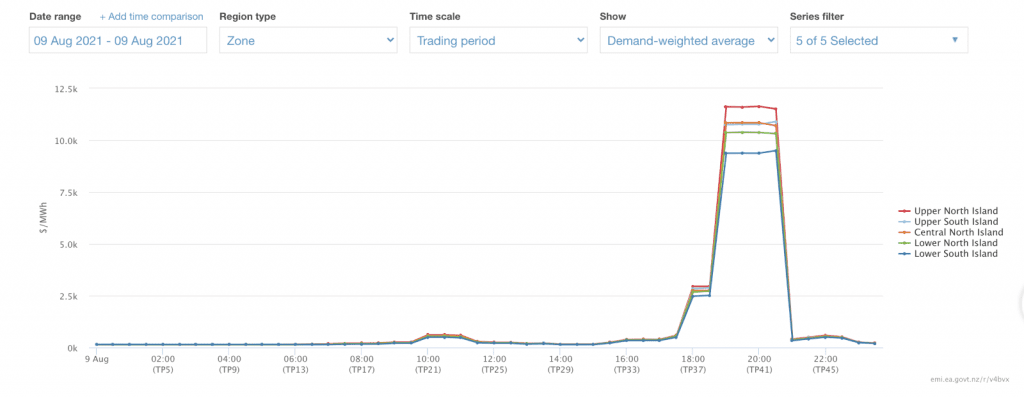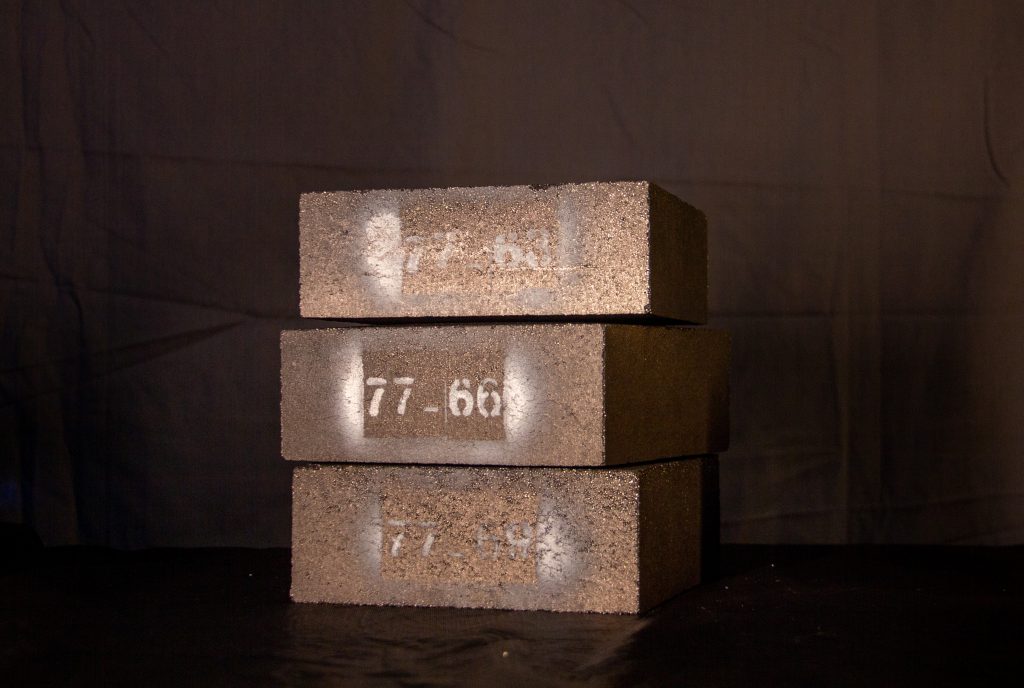MGA Thermal’s blocks offer a storage solution for a climate-friendly grid
By Rohan MacMahon, Dr Jez Weston, Arden Jarrett
On the night of August 8th, one of the coldest nights of the year, about 20,000 households in New Zealand were plunged into darkness. It came down to a simple supply and demand problem. While households were turning on their heaters, electric blankets and heat pumps, the electrical generators struggled to keep up. The wholesale spot price spiked, reaching around 1000x the usual price.
On the night, some generators were offline which already put the country at risk of an electricity undersupply. Then the cold snap pushed household electricity demand to extreme levels and the country experienced a massive shortage causing the spot to prices spike severely. The event triggered scarcity pricing. The Upper North Island hit $11,631.66 at 8pm, seen below.

Source: Electricity Authority
It’s the storage, stupid
What happened to the wholesale price on August 8, 2021? Spot prices (within certain limits) follow the principles of supply and demand. A time-dependent ‘spot price’ is nominated by the grid operator by comparing demand forecasts to the amount of electricity that energy generators commit to dispatch onto the grid. An undersupply pushes the spot price up and an oversupply pushes the spot price down. Note that the spot prices are scaled when scarcity pricing is triggered in extreme events.
Some politicians and opportunists seized on this event to suggest the gradual shift to renewables was to blame. Some even made a non-existent link to the end of off-shore oil and gas exploration.
In fact, there’s a simple way to prevent this type of event from happening again. Like the rest of the world, New Zealand has limited grid-scale energy storage and peak generation capacity (without gas). The challenge is to flexibly meet demand peaks in a renewable and economical way. The New Zealand Government has committed $30 million to study expanding the national grid’s storage capacity.
The key word here is flexible. A new storage material recently invested in by New Zealand’s Climate Venture Capital Fund could be the solution. MGA Thermal can provide massive-scale energy storage facilities to help shift the peak generation curve to meet peak demand. Energy storage also provides a flexible emergency buffer. On August 8, some major generating units were offline; if New Zealand had sufficient energy storage, the supply of electricity could have been topped up and blackouts avoided. A massive store of energy such as that offered from technologies like MGA Thermal would improve the grid security in New Zealand, help meet daily demand peaks and even store energy regardless of the winter rainfall level.
MGA Thermal is built on breakthrough Miscibility Gaps Alloy (MGA) technology, extraordinary shoebox-sized blocks that are capable of receiving energy generated by renewables, storing it cheaply and safely as thermal energy, then using it to run steam turbines at thermal power stations instead of burning coal.
The blocks, which can be stacked like building blocks or bricks, are able to store millions of kilowatt hours of energy, in a cheaper, safer and longer-lasting way compared to other dispatchable solutions. A stack of 1000 blocks — about the size of a small car — is enough energy stored to power 27 homes for 24 hours.

MGA Thermal’s solution focuses on the full picture of sustainability. The blocks themselves can be made from recycled materials and recycled again at end of life. The solution also enables the conversion of existing infrastructure, including coal-fired power plants, into grid-scale energy storage or the creation of new supplementary infrastructure alongside solar and wind farms to provide continuous, dispatchable energy when the sun doesn’t shine or wind doesn’t blow.
Whether it’s MGA Thermal’s blocks or another form of battery, New Zealand needs to solve its storage problem. Without a solution we will continue to rely on imported coal, forecast this year to reach record volumes – a scenario unacceptable to anyone.
Dr Jez Weston, Rohan MacMahon are partners in the Climate VC Fund
Arden Jarrett is an executive with MGA Thermal
Check out our investment in MGA Thermal
